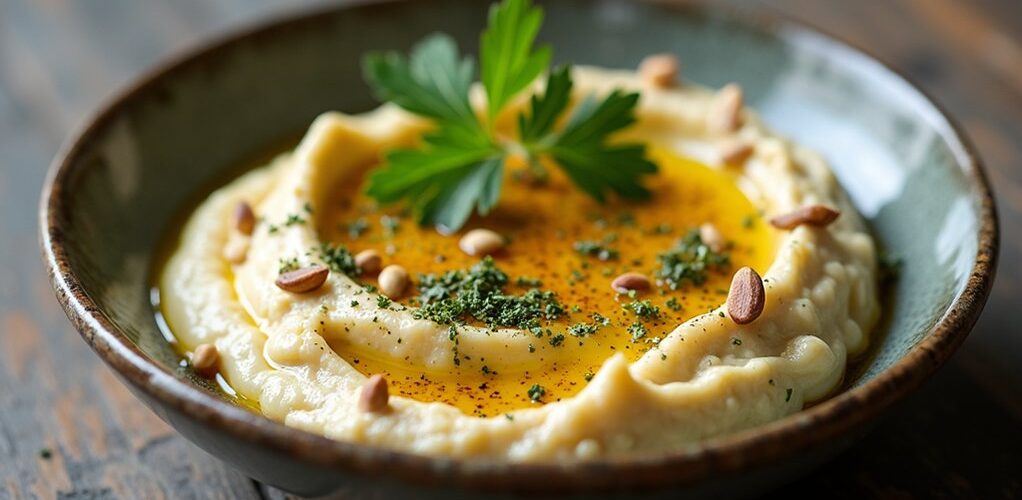
Baba ganoush offers an excellent low-carb option for health-conscious diners, containing only 5.46g of net carbs per 100g serving. This traditional Middle Eastern dip combines roasted eggplant, tahini, and olive oil to create a creamy, smoky spread that fits well within ketogenic dietary guidelines. A typical 30g portion provides just 1.64g of net carbs, making it a practical choice for carb-restricted eating plans. The dish's nutritional profile reveals additional benefits beyond its carbohydrate content.
Key Takeaways
- Baba Ganoush contains only 5.46g net carbs per 100g serving, making it suitable for low-carb and ketogenic diets.
- A typical 30g portion provides just 1.64g net carbs, allowing easy incorporation into strict daily carb limits.
- The dip's high fiber content (4.1g per 100g) reduces its net carb impact while supporting digestive health.
- Rich in healthy fats from tahini and olive oil, Baba Ganoush aligns well with low-carb diet macronutrient goals.
- Portion control remains essential, as larger servings can quickly accumulate carbs within a daily limit.
The Origins and Essence of Baba Ganoush
While its name may spark curiosity among food enthusiasts, Baba Ganoush stands as a cornerstone of Lebanese cuisine, representing centuries of culinary tradition in the Middle East.
From humble eggplant roots to cultural icon, Baba Ganoush embodies the essence of Lebanese culinary mastery and tradition.
This vegan-friendly appetizer showcases the transformative power of roasted eggplant, which develops its characteristic smoky flavor through traditional charring over an open flame. When combined with tahini and olive oil, the mixture creates a creamy, distinctive dip that has become beloved throughout Mediterranean regions.
The preparation method, deeply rooted in Lebanese culture, demonstrates how simple ingredients can be enhanced through careful technique.
The resulting dish offers a complex flavor profile that has helped Baba Ganoush maintain its position as a staple in Middle Eastern dining, whether served in homes or restaurants.
Breaking Down the Nutritional Profile
When examining the nutritional composition of Baba Ganoush, health-conscious individuals will find a remarkably balanced profile that aligns well with low-carbohydrate dietary requirements.
This Mediterranean dip contains just 5.46g of net carbs per 100g serving, with a modest 1.64g per typical 30g portion, making it suitable for those following a ketogenic diet while staying within their daily carb limits.
The nutritional profile of Baba Ganoush extends beyond its low-carb nature, featuring 13.25g of healthy fats per 100g and a substantial 4.1g of dietary fiber, which supports digestive health.
Additionally, this nutrient-dense dish provides essential vitamins C and A, along with calcium, making it a wholesome choice for those seeking both flavor and nutritional benefits in their low-carb lifestyle.
Incorporating healthy oils like olive oil into Baba Ganoush enhances both flavor and nutritional value, supporting heart health and reducing inflammation.
Carbohydrate Content Analysis
Baba Ganoush offers a manageable carbohydrate profile for low-carb dieters, containing 5.46g of net carbs per 100g serving, with smaller 30g portions providing just 1.64g of net carbs. The dip's total carbohydrate content of 9.56g per 100g includes 4.1g of dietary fiber, making it easier to incorporate into daily carb allowances when properly portioned. Careful measurement of serving sizes remains essential, as consuming larger amounts can quickly accumulate carbs and potentially disrupt low-carb dietary goals. Additionally, enhanced appetite control can be achieved by incorporating foods like Baba Ganoush into your diet, as higher fat and protein intake can lead to increased satiety and reduced hunger levels.
Net Carbs Per Serving
Understanding the net carb content of Baba Ganoush is essential for individuals monitoring their carbohydrate intake, particularly those following ketogenic or low-carb diets. This Mediterranean dip, made primarily from eggplant, tahini, and olive oil, contains approximately 5.46g of net carbs per 100g serving, with a moderate 30g portion providing just 1.64g of net carbs.
- A standard 100g serving contains 9.56g total carbohydrates and 4.1g dietary fiber.
- Smaller 30g portions help maintain daily carb limits while enjoying the dip.
- The inclusion of low-carb ingredients makes it suitable for keto meal plans.
- Dietary fiber content reduces the net carb impact, making portion control more manageable.
The manageable net carb content allows for strategic incorporation into low-carb eating plans when properly portioned.
Tracking Daily Carb Limits
Successfully tracking daily carbohydrate intake requires careful monitoring of Baba Ganoush portions within the broader context of a ketogenic or low-carb eating plan. With 5.46g of net carbs per 100g serving, proper dietary management becomes essential for maintaining ketosis and avoiding keto flu symptoms.
| Portion Size | Net Carbs | % of 20g Daily Limit |
|---|---|---|
| 30g serving | 1.64g | 8.2% |
| 50g serving | 2.73g | 13.7% |
| 100g serving | 5.46g | 27.3% |
To effectively manage carb limits while enjoying Baba Ganoush, implementing portion control and tracking food intake through dedicated apps is recommended. This systematic approach helps individuals stay within their daily carbohydrate intake goals while incorporating this flavorful dip into their low-carb lifestyle.
Comparing Common Portion Sizes
When managing carbohydrate intake on a ketogenic diet, careful analysis of portion sizes becomes essential for maintaining nutritional goals.
Different serving quantities of Baba Ganoush can greatly impact carb intake, making portion control vital for strict keto dieters. A standard 100g serving contains 5.46g net carbs, while smaller portions offer more flexibility in daily carb management.
- 30g serving: Contains 1.64g net carbs, ideal for strict keto adherence
- 50g serving: Provides 2.73g net carbs, suitable for moderate consumption
- 100g serving: Delivers 5.46g net carbs, requires careful planning
- 200g serving: Contains 10.92g net carbs, may exceed daily limits
Understanding these portion sizes helps keto dieters make informed decisions about incorporating Baba Ganoush into their meal plans while maintaining ketosis.
Health Benefits for Keto Dieters
The Mediterranean staple Baba Ganoush emerges as an excellent addition to ketogenic meal plans, offering a strategic balance of macronutrients that align with low-carb dietary goals. With only 5.46g of net carbs per 100g serving, this eggplant-based dip provides substantial healthy fats from tahini while maintaining ketosis-friendly macros. Beyond its favorable macronutrient profile, Baba Ganoush delivers impressive nutritional benefits through its whole-food ingredients. The combination of eggplant and tahini creates a rich source of essential vitamins and minerals, while contributing 4.1g of dietary fiber per serving to support digestive health. As a versatile side dish, it encourages increased vegetable intake by serving as a flavorful accompaniment to low-carb vegetables, making it easier for keto dieters to maintain their nutritional goals. Research indicates that adherence to a ketogenic diet can lead to a reduction in HbA1c levels by approximately 1.02%, showing its potential benefits for managing blood sugar levels.
Making Your Own Keto-Friendly Version
Creating a keto-friendly Baba Ganoush requires careful attention to ingredient selection and preparation methods to maintain its authentic Mediterranean flavors while keeping carbohydrates minimal. The foundation lies in properly fire-roasting eggplant and combining it with essential ingredients like tahini, olive oil, and lemon juice, while monitoring portions to keep net carbs at approximately 5.46g per 100g serving. Fire-roast the eggplant until completely tender for ideal smoky flavor. Blend with precise amounts of tahini and olive oil to achieve desired healthy fat content. Add garlic, lemon juice, and spices like cumin or paprika for enhanced taste. Serve with low-carb vegetables instead of traditional pita bread for dipping. To preserve the low-carb nature, avoid starchy vegetables like potatoes or corn as dipping options, which are not suitable for a keto diet. This keto variation maintains the authentic taste while providing a satisfying, low-carb alternative to the traditional recipe.
Perfect Pairings and Serving Suggestions
Since traditional Mediterranean dips often rely on high-carb accompaniments, discovering suitable low-carb pairings for Baba Ganoush becomes essential for maintaining ketogenic dietary goals.
This healthy dip pairs exceptionally well with an array of low-carb vegetable pairings, including sliced cucumbers, celery sticks, and bell peppers, while thinly sliced carrots and radishes offer satisfying crunch alternatives.
For those following a keto diet, parmesan crisps and low-carb crackers provide excellent substitutes for traditional pita bread.
Baba Ganoush can also be incorporated into an extensive Mediterranean platter featuring grilled chicken, olives, and other keto-friendly options.
For a complete appetizer spread, consider serving it alongside complementary dishes like cauliflower hummus or tzatziki, creating a diverse selection of textures and flavors while maintaining low-carb requirements.
Incorporating vegetables like leafy greens and above-ground vegetables ensures a nutrient-dense platter that aligns with keto principles.
Storage Tips and Meal Prep Strategies
Proper storage techniques play an essential role in maintaining the quality and extending the life of Baba Ganoush for low-carb meal planning.
When stored correctly in an airtight container with a protective layer of olive oil, this Mediterranean dip remains fresh in the refrigerator for up to five days, making it an excellent candidate for batch preparation.
For those planning further ahead, Baba Ganoush can be portioned into smaller containers and frozen for up to three months, offering convenient access to this nutritious, keto-friendly option whenever needed.
Proper Storage Methods
The longevity and quality of Baba Ganoush depend greatly on appropriate storage techniques and meal preparation strategies.
For ideal freshness, store this low-carb dip in an airtight container in the refrigerator for up to one week, with a protective layer of olive oil on top to prevent oxidation.
Those following a keto diet can maximize convenience through proper meal prepping, dividing the mixture into portioned containers for easy tracking.
- Store in the refrigerator for up to 7 days in airtight containers
- Freeze for extended storage up to 3 months in freezer-safe containers
- Add a thin layer of olive oil before sealing to prevent browning
- Portion into individual servings for simplified meal planning and carb tracking
Always stir well before serving, as ingredients may separate during storage.
Batch Cooking Success Tips
Mastering batch cooking techniques enhances Baba Ganoush preparation from a one-time endeavor to a sustainable meal planning strategy.
When preparing large quantities, store portions in airtight containers in the refrigerator, where they remain fresh for up to seven days, perfect for weekly meal prep planning.
For extended storage, freeze individual portions using ice cube trays, allowing for efficient portion control and easy thawing.
Upon serving frozen portions, revitalize the flavor with a splash of fresh lemon juice or olive oil.
Strategic meal prep involves pairing the dip with low-carb vegetables for convenient, healthy snacking throughout the week.
To maintain ideal freshness and organization, label containers with preparation dates and serving sizes, ensuring timely consumption and maximum flavor preservation.
Common Recipe Variations and Modifications
Culinary creativity opens up numerous possibilities for adapting traditional Baba Ganoush to suit various dietary needs and taste preferences. The classic recipe can be transformed by incorporating different spices, substituting ingredients, or adding new elements while maintaining its low-carb, keto-friendly nature. Experiment with cumin, smoked paprika, or cayenne pepper to create unique flavor profiles. Replace tahini with alternative nut or seed butters while preserving the creamy texture. Add fresh herbs like parsley or cilantro for brightness and visual appeal. Substitute eggplant with low-carb vegetables such as zucchini or bell peppers. Stevia and erythritol are ideal sweeteners for keto recipes, offering sweetness without disrupting ketosis. These modifications allow for personalization while keeping the dish aligned with low-carb dietary goals. Whether adjusting for heat preference, dietary restrictions, or simply exploring new tastes, Baba Ganoush remains a versatile and adaptable dish.
Frequently Asked Questions
Is Baba Ganoush Low Carb?
Mediterranean cuisine's Baba Ganoush offers eggplant benefits as a healthy dip, containing only 5.46g net carbs per 100g serving. This vegan appetizer fits low-carb snacks category while delivering rich flavor profiles.
Is Baba Ganoush High Carb?
Baba ganoush is not high in carbs, containing only 5.46g net carbs per 100g serving. This Mediterranean eggplant-based dip offers a healthy, low-carb alternative perfect for those monitoring carbohydrate intake.
Which Is Healthier, Hummus or Baba Ganoush?
Both hummus and baba ganoush offer distinct nutritional benefits, but baba ganoush contains fewer carbs, more fiber, and healthy fats, while hummus provides higher protein content through its chickpea-based ingredients.
Is Baba Ganoush Healthy for Weight Loss?
Baba ganoush supports weight management through its low caloric content, high fiber content, and quality ingredients. Its nutritional benefits promote satiety levels, while portion control makes it suitable for various dietary restrictions.
Conclusion
Baba ganoush stands as an excellent low-carb option for those following ketogenic or carb-conscious diets, containing roughly 2-3 net carbs per serving. Its primary ingredients of eggplant, tahini, and olive oil deliver essential nutrients while maintaining minimal carbohydrate content. Whether store-bought or homemade, this Middle Eastern dip offers versatility and flavor without compromising dietary goals. With proper storage and creative serving options, baba ganoush proves a reliable addition to any low-carb meal plan.


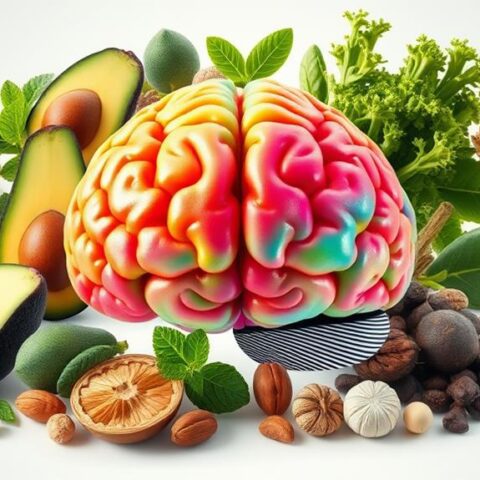
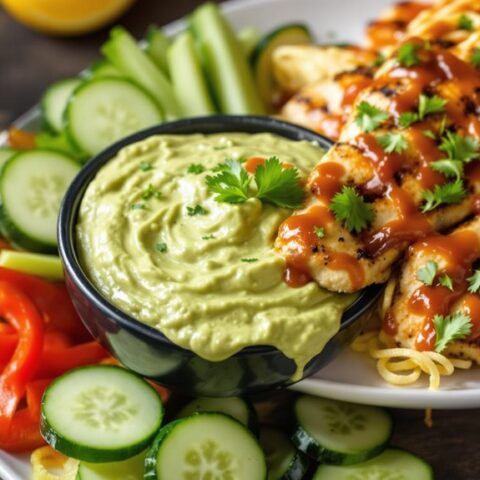
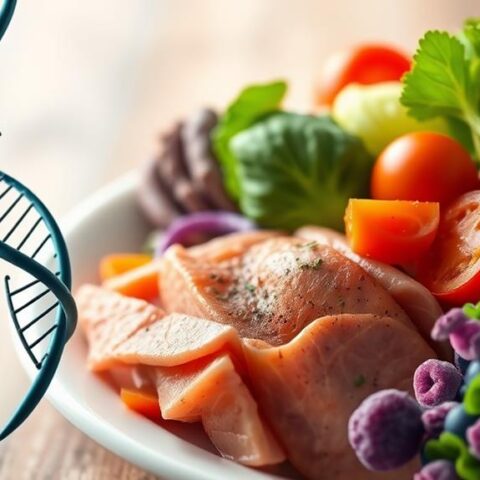
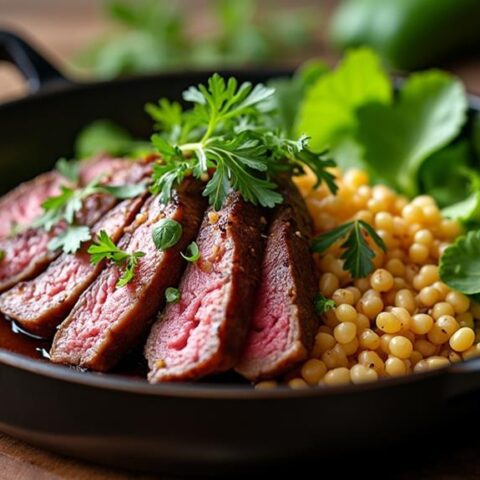




No Comments